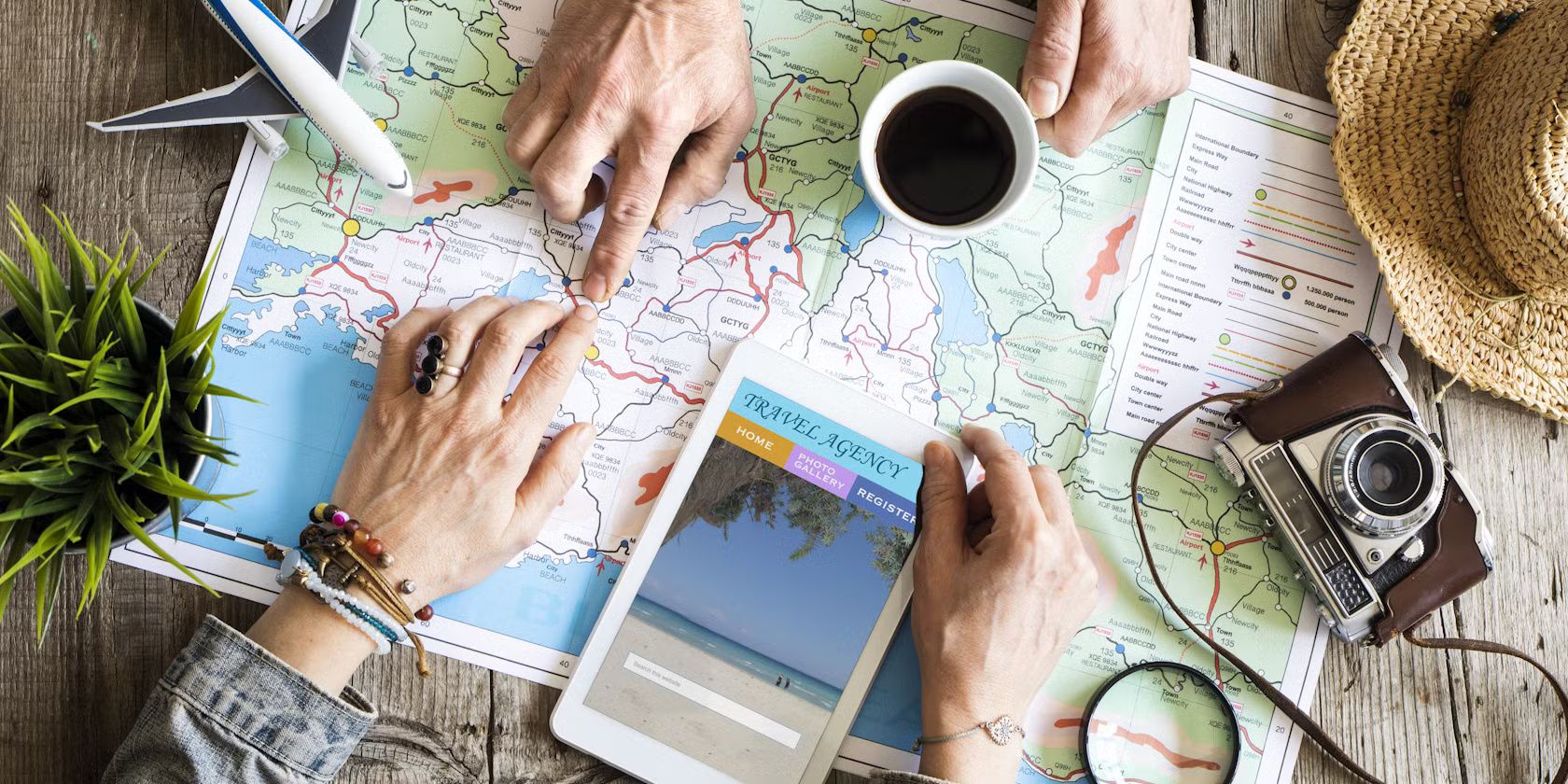Travel planning tools are digital platforms, apps, or services that help individuals organize, book, and manage trips efficiently. These tools exist to simplify the many elements of travel such as choosing destinations, managing itineraries, comparing prices, booking accommodations, and coordinating transportation.
Traditionally, planning a trip involved guidebooks, phone calls, and travel agents. Today, digital transformation has enabled travelers to manage their entire journey from a smartphone or laptop. Travel planning tools serve as a hub for organizing complex travel details and minimizing the chance of overlooked bookings or itinerary conflicts.

Why Travel Planning Tools Matter Today
Smart travel planning tools are more important than ever due to the growing complexity of travel in a post-pandemic and tech-savvy world. Here's why these tools are so relevant:
-
Rising traveler expectations: People seek personalized experiences and seamless travel from door to destination.
-
Increased travel disruptions: Weather, strikes, or health advisories make flexibility and up-to-date information crucial.
-
Cost transparency: With inflation affecting travel prices, tools that compare and manage costs are in demand.
-
Digital reliance: Travelers now expect real-time information, mobile alerts, and synced itineraries across devices.
Who benefits the most:
-
First-time travelers or solo tourists needing step-by-step guidance
-
Frequent business travelers who need time-saving automation
-
Families planning multi-leg trips with multiple bookings
-
Digital nomads and remote workers coordinating long stays
Problems travel tools solve:
-
Unorganized itineraries
-
Missed bookings or scheduling conflicts
-
Hidden costs
-
Overwhelmed planning process
Key Travel Trends and Updates in the Past Year
The travel tech space has seen several changes in the last 12 months. Below are notable trends and developments from 2024 and early 2025:
-
AI Integration: Tools like TripIt and Google Travel now use AI to recommend itineraries, avoid weather disruptions, and suggest optimal routes.
-
Sustainable travel options: Eco-friendly route planning and carbon offset calculators are being built into platforms like Skyscanner and Hopper.
-
All-in-one travel dashboards: Expedia and Booking.com have enhanced their platforms to manage everything—from flights to activities—in one place.
-
Real-time travel alerts: Services such as Kayak and TripCase now offer instant notifications for gate changes, cancellations, or local advisories.
-
Visa & entry requirement automation: Tools like Sherpa and iVisa inform travelers of documentation requirements and travel restrictions by destination.
These features enhance the overall experience, save time, and reduce uncertainty in travel planning.
Rules, Regulations, and Travel Policies
Travel planning is often affected by national and international laws. Whether you're traveling for leisure, business, or relocation, understanding policy-related factors is important.
Key regulatory considerations that affect travel planning:
-
Visa and entry laws: Different countries have distinct visa requirements, and many now use eVisas or visa-on-arrival policies. Travel planning tools integrate these checks automatically.
-
COVID-19 health regulations (evolving): Although most countries have lifted major restrictions, some destinations still require proof of vaccination or health declarations.
-
Data protection: With tools handling personal data, compliance with data protection laws like GDPR (Europe) and CCPA (California) is essential. Most trusted apps now comply.
-
Travel insurance mandates: Countries such as Thailand or the UAE may require travel insurance to cover medical emergencies, affecting the booking process.
-
Local tourism taxes: Popular European cities like Amsterdam or Venice charge tourism taxes, now included or calculated within many booking tools.
Before planning a trip, it's advisable to verify local entry rules through embassy sites or reliable policy databases like IATA’s Travel Centre.
Helpful Travel Tools, Websites, and Resources
The variety of travel tools available today covers nearly every aspect of trip management. Here's a categorized overview of top resources:
| Purpose | Tool/Platform | Key Feature |
|---|---|---|
| Itinerary Management | TripIt | Auto-creates detailed travel plans from emails |
| Flight Comparison | Google Flights, Skyscanner | Price alerts, flexible search |
| Accommodation Booking | Booking.com, Airbnb | User reviews, location filters |
| Transportation Planning | Rome2Rio, Omio | Maps out routes combining train, bus, flight |
| Expense Tracking | Trail Wallet, Splitwise | Budget planning and expense splitting |
| Visa & Document Info | Sherpa, iVisa | Entry requirement checker |
| Trip Collaboration | Travefy, Wanderlog | Share plans with friends or group travel |
| Local Insights | Culture Trip, Atlas Obscura | Unique local experiences |
| Travel Insurance | SafetyWing, Allianz Travel | Coverage for different trip types |
-
Printable travel checklists
-
Budget planning Excel sheets
-
Daily itinerary planner (PDF)
-
Packing list apps like PackPoint
These tools streamline preparation, reduce the risk of forgetting essentials, and allow for more enjoyable experiences.
Frequently Asked Questions (FAQs)
What is the best app for organizing a trip itinerary?
TripIt is widely considered one of the best for itinerary organization. It auto-imports travel details from your email and builds a day-by-day plan that you can access offline.
Can travel planning tools help with budget management?
Yes. Apps like Trail Wallet and TripCoin allow you to track expenses in real time, categorize spending, and stay within budget.
Are these tools safe to use with personal data?
Most top-rated tools comply with major data protection laws such as GDPR. Still, users should review privacy policies and avoid unknown apps without verified user feedback.
How can I know visa requirements for a country I'm visiting?
Platforms like Sherpa or iVisa provide real-time information about visa policies, including eVisa applications and COVID-related entry rules.
Do I still need a travel agent if I use these tools?
For standard travel, most people find tools sufficient. However, for complex or luxury trips, travel agents may offer value through custom arrangements or local partnerships.
Conclusion: Smarter Travel Starts with the Right Tools
In today’s digitally connected world, travel planning tools are more than convenience they're essential. They empower travelers to make informed decisions, avoid disruptions, and enjoy tailored experiences.
Whether you’re a first-time traveler or a seasoned explorer, using the right mix of apps and websites can transform your travel experience from chaotic to seamless. As technology continues to evolve with AI and data-driven insights, staying updated with the best tools will help you travel smarter, safer, and more efficiently.
By exploring these platforms and keeping up with the latest trends, you’ll be better equipped to plan your next journey with confidence and clarity.

